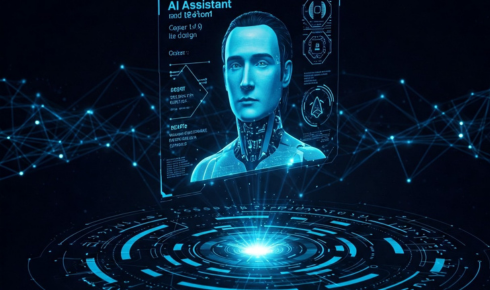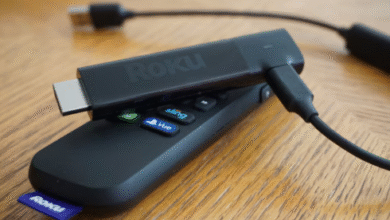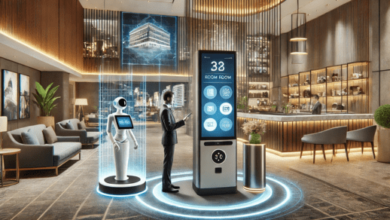AI Agents as Assistants for Product and Engineering Teams: Supercharging Innovation and Efficiency

In the ever-evolving landscape of technology, the demand for speed, accuracy, and innovation has never been higher. Product and engineering teams are at the forefront of this race—tasked with launching cutting-edge features, optimizing development cycles, and delivering superior products faster than ever before. Enter AI agents—intelligent, autonomous software entities designed to work alongside humans, automating repetitive tasks and making complex decisions based on data.
Today, AI agents are transforming how teams operate, becoming indispensable partners driving efficiency, productivity, and smarter decision-making. By leveraging the capabilities of an enterprise AI platform and deploying specialized enterprise AI agents, companies are unleashing new levels of agility and effectiveness in their product and engineering teams.
1. Enhancing Productivity and EfficiencyAutomating Repetitive Tasks
One of the core strengths of AI agents is their ability to annihilate tedious and repetitive tasks. This allows product managers and engineers to focus on creativity and strategic work that moves the needle.
- Code Generation and Review: AI-powered tools can rapidly generate boilerplate code, flag bugs, and even suggest optimizations. This not only reduces human error but also accelerates the development cycle, helping teams deploy features and fixes with confidence.
- Test Automation: Manual testing is time-consuming. AI enables automatic generation and execution of comprehensive test cases, ensuring robust, bug-free deployments without the manual effort.
- Documentation Management: AI agents can maintain technical documentation by monitoring code changes and updating documentation in real-time. This guarantees up-to-date, accurate resources—crucial for onboarding and knowledge sharing.
- Intelligent Task Management: AI can prioritize tasks based on urgency, complexity, and resource availability, assigning them to suitable team members. With improved visibility into project progress, teams meet delivery deadlines with less hassle.
- Meeting Summarization: Post-meeting confusion is a thing of the past. AI agents can transcribe discussions, summarize key decisions, and track action items, greatly streamlining team communication and accountability.
2. Streamlining Workflows with Intelligent AutomationIntelligent Routing and Triaging
Efficiently handling the inflow of issues, feature requests, and support tickets is a differentiator for successful teams. AI agents can analyze and route incoming queries, bug reports, and support cases to the right expert or system automatically, reducing bottlenecks and enhancing customer satisfaction.
- Predictive Maintenance: In hardware and IoT engineering, AI can analyze sensor data to forecast equipment failures, enabling proactive fixes and minimizing costly downtime.
- Supply Chain Optimization: AI analyzes demand signals, manages inventory, and identifies disruptions—ensuring a smarter, more responsive supply chain.
- Personalized Recommendations: Whether it’s suggesting relevant code libraries or knowledge articles, AI agents recommend resources tailored to individual engineers, accelerating problem-solving.
By embedding enterprise AI agent solutions into existing infrastructure, technology teams gain seamless, intelligent workflow automation.
3. Enabling Data-Driven Decision-MakingActionable Insights for Product and Engineering Teams
The explosion of data in today’s SaaS and hardware products can be overwhelming. AI agents help teams harness this data for continuous improvement:
- Data Analysis & Visualization: AI-powered analytics rapidly identify hidden trends, operational bottlenecks, and growth opportunities, offering actionable insights at every stage of the product lifecycle.
- Market Research & Competitive Analysis: Automating the process of scraping and analyzing competitor offerings, AI provides real-time intelligence to guide strategic product development.
- A/B Testing: By automating test design, data collection, and statistical analysis, AI allows teams to quickly iterate on new features and optimize user experiences.
- Risk Management: Proactive risk identification and assessment help teams prevent project overruns, compliance issues, and security vulnerabilities before they impact users.
4. Real-World Use Cases: From Product Management to DevOpsProduct Management
Product managers can unlock new efficiencies by deploying AI-driven assistants:
- Customer Feedback Mining: AI parses user reviews, Net Promoter Scores (NPS), and support tickets to uncover pain points, informing feature prioritization.
- Predicting Product Launch Outcomes: AI models analyze market trends, adoption rates, and competitor moves, giving reliable predictions for new product introductions.
Engineering
Engineering teams see value through:
- AI-Enhanced Development: From code review and debugging to CI/CD pipeline optimization, AI automates and augments everyday engineering activities.
- Design Optimization: AI proposes design changes for improved performance, manufacturability, or cost efficiency.
DevOps and SRE
Reliability engineering and operations are transformed by:
- Infrastructure Automation: AI agents rapidly provision and manage infrastructure as code (IaC), reducing manual configuration and human mistakes.
- Proactive Monitoring: AI continuously monitors system metrics, identifying and resolving potential issues long before they impact users.
For a comprehensive overview, the what is an ai agent blog provides detailed explanations of agent functions and their transformative potential.
5. Best Practices for Implementing AI Agents in Product and Engineering Teams
Adopting AI agents is not just a technical upgrade—it’s an organizational transformation. Consider the following when deploying AI in your organization:
- Data Quality: High-quality outcomes depend on clean, accurate, and well-organized data. Invest in robust data pipelines and regular audits to maximize your AI agent’s impact.
- Seamless Integration: Customizing agent deployment to fit within existing tools, workflows, and platforms ensures quick adoption and user acceptance.
- Training and Education: Encourage team engagement by offering training on AI tools, fostering buy-in, and empowering staff to get the most from their AI assistants.
- Ethical Considerations: Carefully manage AI’s ethical implications, including privacy and bias mitigation.
- Robust Security: Secure both data and AI models against unauthorized access or tampering, protecting sensitive projects and intellectual property.
The Future of Collaboration: Why AI Agents Belong in Every Product and Engineering Team
In the relentless pursuit of innovation, speed, and quality, enterprise teams face mounting pressure to deliver more, faster. AI agents are not replacements for talented product managers and engineers—but they supercharge what people can achieve. By automating the grind, streamlining processes, and illuminating paths to data-driven decisions, these digital collaborators unlock strategic focus, fuel creativity, and unshackle time and talent for higher-level impact.
The bottom line? Embracing AI agents, backed by modern AI platforms, is the competitive advantage today’s product-led organizations can no longer afford to ignore. The future of engineering and product excellence belongs to those who put AI agents at the heart of their digital workforce.
Frequently Asked Questions: AI Agents for Product and Engineering Teams
1. What is an AI agent, and how does it differ from standard automation?
An AI agent is an intelligent software entity capable of perceiving, deciding, and acting autonomously based on data and context. Unlike standard script-based automation, AI agents adapt, learn from feedback, and perform tasks in complex scenarios.
2. How do AI agents enhance productivity for engineering teams?
AI agents automate repetitive activities like test execution, documentation, code review, and meeting notes, allowing engineers to focus on creative and complex problem-solving.
3. Can AI agents improve code quality?
Absolutely. AI-driven code generation and review tools can suggest bug fixes, refactoring, and best practices, resulting in cleaner, more reliable code.
4. How do AI agents help product managers?
AI agents can analyze customer feedback, prioritize feature backlogs, automate market research, and provide predictive insights into product launches, helping product managers make better decisions faster.
5. Are AI agents suitable for DevOps teams?
Yes. DevOps teams benefit from AI agents in infrastructure automation, system monitoring, auto-remediation of incidents, and predictive scaling.
6. How is data privacy maintained when implementing AI agents?
Modern AI solutions employ encryption, access controls, and ethical AI governance to safeguard sensitive information and meet compliance requirements.
7. Can AI agents integrate with existing team tools and platforms?
Definitely. Most enterprise AI agents are designed for seamless integration with popular tools such as Jira, Slack, GitHub, and CI/CD systems.
8. What are the key considerations before deploying AI agents?
Focus on data quality, training, ethical guidelines, and robust security measures to ensure successful implementation and adoption.
9. Do AI agents replace human roles in product and engineering teams?
No. AI agents are designed to augment human teams by removing grunt work, surfacing insights, and amplifying human creativity—not replacing qualified professionals.
Leverage today’s AI agent technology to accelerate, innovate, and outpace the competition—your product and engineering teams will thank you.




